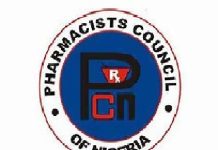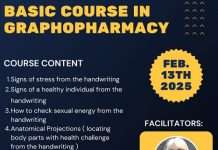(By Dr Lolu Ojo)
This topic is closely related to the one previously discussed. The medical representative is a key player in the drug distribution system. He is the link between the manufacturer, importer or wholesaler (as the case may be) and the hospitals (public or private), industrial clinics, government agencies/parastatals and the community pharmacy. He provides information on the pharmacological basis of therapeutics in the segment of interest, offers proofs for claims made and makes supplies, as may be demanded. It is a good job, which the paraphernalia of office (car, gadgets, etc.) makes very attractive to all young pharmacists and scientists.
Reminiscences
In the ‘80s and up till the late ‘90s, the medical representative was indeed a great entry level job that was highly desired. Most multinationals operating in the country then had different training schemes for their staff. New recruits were encouraged to read the voluminous training or product manuals for deep understanding of the disease conditions and management options. Such was the level of practice in May, 1988, when I joined the services of Roche Nigeria Limited as a medical representative.
We took the training sessions like our normal classroom study. We prepared for the ‘after the training’ tests, as if they were the final B. Pharm examinations. We went to the field largely ‘green’ but with the enthusiasm and optimism of conquerors. We took on doctors in groups in their common rooms and challenged professors and consultants to ‘pharmacological contests’. We got our satisfaction in the ability to displace competing products from their ‘binding sites’ and got departments upon departments to adopt our products. We built a ‘covalent bond’ with chief pharmacists, without neglecting the deputy, who would later succeed him, and also the head of stores and the account/audit department. Some of these relationships have endured for many years, despite the changing roles.
In those days, meeting targets was a ‘must do’ because you would not want to be the subject of jokes during the quarterly cycle meeting and, of course, there was competition for various prices. It was fun to move around the states, making friends and creating customers for your products and company. We learnt the ‘pareto principle’ quickly and knew we could increase our revenue base through the vertical and horizontal expansion of our customer base. We were very ambitious and everyone was always on the beat, working to get up the career ladder. There were opportunities to make extra money through the discount offered by some wholesalers. These charges were through a dignified mode and were never at the expense of your company. We were always conscious of the fact that the company provided the platform to develop skills, competencies, grow our career and live a better life. It was usually a very big surprise whenever any case of fraud is reported during our regular meetings.
Retrogressions
That was then, the good old days! Now, things have changed. The medical representative (and even the field manager’s) job has gone to the dogs. People take this job now because they are looking for an organisation that will pay their bills for some months before they are caught doing nothing. They take up the job because they want to steal. Training sessions are sleeping sessions or, at best, sessions to be tolerated for a few days. Training manuals and other scientific papers end up being dumped in the bedroom.
Salesmanship is now about collaborating with all manners of characters. Goods are sold and the proceeds are siphoned. Company resources are used to fund personal trips abroad or numerous academic programmes within.
It is even more disturbing when you have one rep or manager working for more than one company at the same time. A case was reported to NAIP (Association of Industrial Pharmacists of Nigeria) about a pharmacist manager working for two companies at the same time. Each company gave him an official car and a huge salary. He drew expense reimbursement from each company and had a total of 12 subordinates (six from each company). He fooled the two companies for 17 months!
The space has, indeed, been completely polluted. Of course, the practice of some companies may have encouraged this kind of behaviour but the stark reality is that the entire value system in the country has been completely corrupted. The only thing that makes meaning now is money; nothing but money. Money, anyhow it comes, including organisational collapse!
Remedies
So, how do we save the pharmaceutical industry from being consumed by the corrupt practices of its component parts? When I was chairman of NAIP, I initiated discussions at CEO level for us to open a central register for all the field operatives in the country. With IT deployment, we should be able to monitor their movements. This will prevent them from committing fraud on ‘the go’ and the knowledge that they are being watched could instil some restraint in them.
Recently, a representative left our company after committing fraud and he went to work for another owned by a close friend, cleverly erasing his record with us. Of course, within six months, he had done it again!
Unfortunately, the response to the IT initiative has been very poor. Nevertheless, the assignment has been handed over to the new chairman, Mr. Gbenga Falabi. I am also aware that NIROPHARM and other bodies are working on this subject also.
…Continues next edition.










